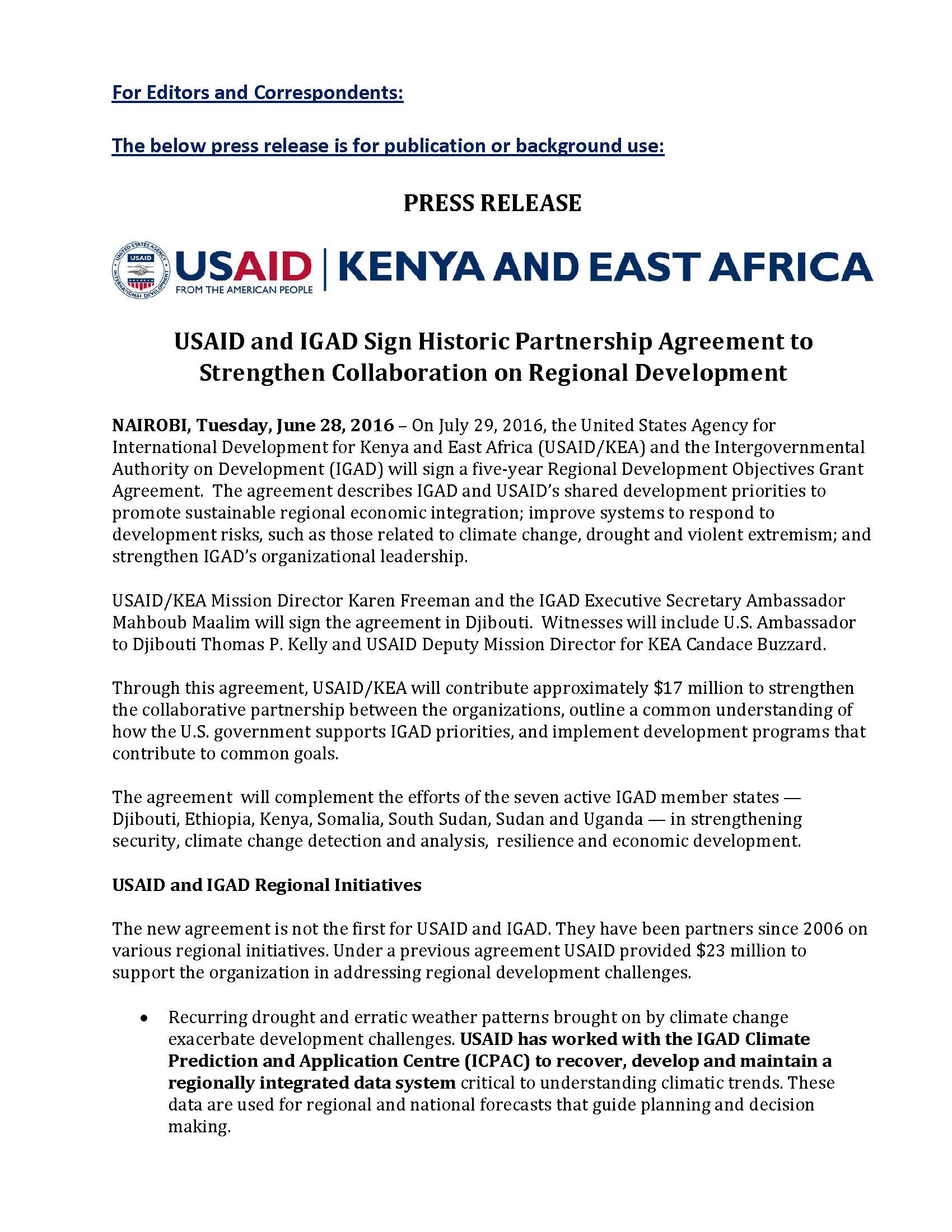NAIROBI, Tuesday, June 28, 2016 – On July 29, 2016, the United States Agency for International Development for Kenya and East Africa (USAID/KEA) and the Intergovernmental Authority on Development (IGAD) will sign a five-year Regional Development Objectives Grant Agreement. The agreement describes IGAD and USAID’s shared development priorities to promote sustainable regional economic integration; improve systems to respond to development risks, such as those related to climate change, drought and violent extremism; and strengthen IGAD’s organizational leadership.
USAID/KEA Mission Director Karen Freeman and the IGAD Executive Secretary Ambassador Mahboub Maalim will sign the agreement in Djibouti. Witnesses will include U.S. Ambassador to Djibouti Thomas P. Kelly and USAID Deputy Mission Director for KEA Candace Buzzard.
Through this agreement, USAID/KEA will contribute approximately $17 million to strengthen the collaborative partnership between the organizations, outline a common understanding of how the U.S. government supports IGAD priorities, and implement development programs that contribute to common goals.
The agreement will complement the efforts of the seven active IGAD member states — Djibouti, Ethiopia, Kenya, Somalia, South Sudan, Sudan and Uganda — in strengthening security, climate change detection and analysis, resilience and economic development.
USAID and IGAD Regional Initiatives
The new agreement is not the first for USAID and IGAD. They have been partners since 2006 on various regional initiatives. Under a previous agreement USAID provided $23 million to support the organization in addressing regional development challenges.
- Recurring drought and erratic weather patterns brought on by climate change exacerbate development challenges. USAID has worked with the IGAD Climate Prediction and Application Centre (ICPAC) to recover, develop and maintain a regionally integrated data system critical to understanding climatic trends. These data are used for regional and national forecasts that guide planning and decision making.
- Persistent violent extremism and conflict have claimed the lives and livelihoods of thousands of East Africans and resulted in millions of dollars in economic losses. USAID has supported the IGAD Conflict Early Warning and Response Mechanism (CEWARN) in its pivotal role managing local, national and regional responses to conflict and violent extremism within and among its member states.
- Due to climate change and El Niño, communities in the region experience more frequent and severe droughts. Through direct USAID support, the IGAD Secretariat is now better positioned to lead and coordinate resilience activities to ensure communities and systems are better able to withstand shocks and droughts.








Comment
Make a general inquiry or suggest an improvement.